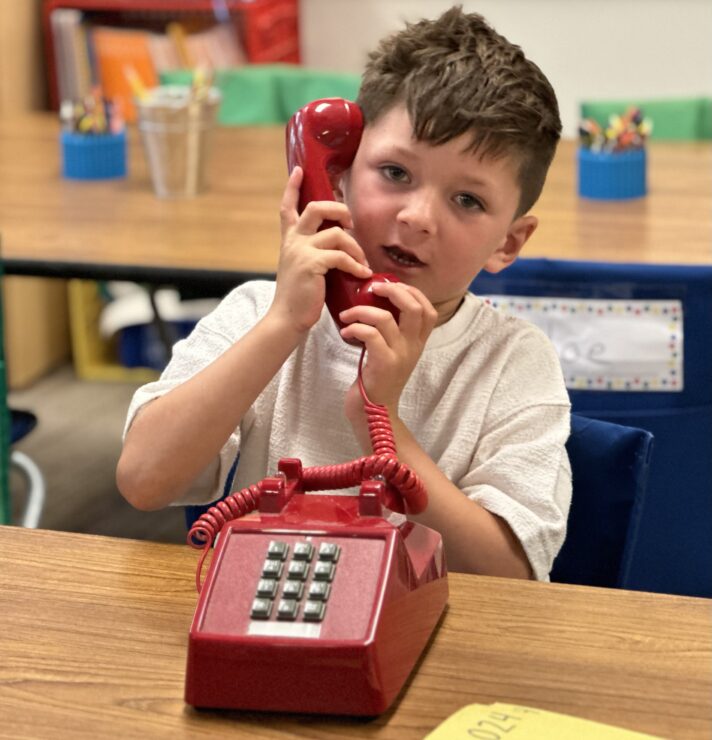Stories
A smartphone-free campus: then, now, and always
September 5, 2024
The drive for phone-free schools is picking up steam. But a student phone ban is nothing new at Aspen Country Day School; it has been in place since the days of flip phones. Here, children spend their days fully engaged with each other, with their teachers, and with the wholesome work of growing up.

A movement to keep schools smartphone-free has picked up steam recently, especially with the release of social psychologist Jonathan Haidt’s best-selling book, “The Anxious Generation.” Over the past several years, educators, medical professionals and parents have seen a noticeable shift from play-based to phone-based childhoods, as well as the subsequent negative effects on social development, depression levels, and other mental health issues among young people.
We emphasize intentionally unstructured free play as a valuable element of a child’s day
Adam Hancock, head of Lower School
“The Anxious Generation” proposes four norms for healthier childhoods: no smartphones until high school; no social media before 16; phone-free school; and more independence, play, and real-world responsibility. As Aspen Country Day School enters the 2024-25 school year, the Castle Creek campus will remain the same smartphone-free zone it has been since the advent of the iPhone.
“In our increasingly digital world, the constant presence of technology makes it challenging to truly be present and connected with ourselves and our communities,” said Middle School Head Mark Boswick. “At Aspen Country Day, we view time away from devices—whether during outdoor education trips, off-campus field trips, or throughout the school day—as a valuable opportunity for students, faculty, and families to be present and fully engaged with the world around them.”
ACDS has always believed strongly in the value of independent exploration throughout the childhood journey. Originally written into the ACDS Family Handbook in the 2010s, the school’s unplugged policy is designed to help children navigate the online world in a joint effort between the school and parents. The school supports the integration of technology into the learning environment when it enhances the education of our students while also acknowledging its responsibility to teach children to use technology to distinguish between appropriate and inappropriate uses.
Part of the ACDS mission from the very beginning has been to plant seeds of of happiness inside and out of the classroom. Play and independent exploration are critical to a child’s development, while it has become clear that smartphones interfere with social and neurological growth.
“In the Lower School, we emphasize intentionally unstructured free play as a valuable element of a child’s day,” said ACDS Lower School Head Adam Hancock.